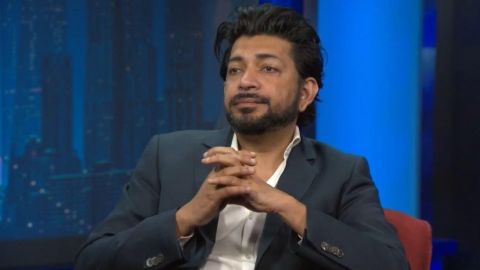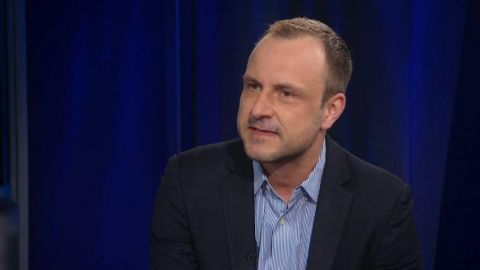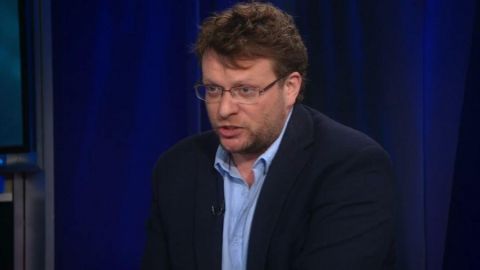Read Transcript EXPAND
CHRISTIANE AMANPOUR: You yourself have interviewed those kinds of people, those kind of right-wing radicals, White supremacists in Europe, right?
PETER POMERANTSEV, AUTHOR, “THIS IS NOT PROPAGANDA”: Yes. They tend to avoid the term White supremacist. They’re more cunning these days. Actually, I interviewed the leader of the Identitarian Movement whose ideas were invoked in this sort of gruesome manifesto of the shooter. And, you know, it’s quite weird. He sorts of uses the language of pro- democracy movements. He says that it is, you know, the White Europeans who are now suffering under the yolk of terrible multiculturalism. These people use ideas like that they have to preserve ethnic diversity, which is a way of saying they have to — you know, they want to stop intermarriage. So, they keep on using the language of progressive causes, of democratic causes, in order to, you know, have an excuse to impose very authoritarian ideas. And I remember, and I’m quoting not quite exactly now, the leader of the Identitarians telling me, “You’re still fighting the old far-right. We’re the new far-right and we’re much, much cleverer.”
AMANPOUR: So, let’s quickly touch on that before I get to the heart of your book. You heard me talk to Peter Neumann, the counterterrorism specialist about solutions, and the U.S. desperately trying to figure out solutions and the FBI calling for a statute that would create, you know, a crime out of this domestic terrorism. So, what are they saying? What is fighting the old far-right? How does one fight the new far-right?
POMERANTSEV: Well, first, one does have to pay attention to language, one does have to be careful the way language is being kind of reformed in order to legitimize very, very harmful ideas. And by harmful, I mean, that they — it is their ideas that kind of delegitimize the rights of others. The word nationalism is making a comeback. It was often a taboo word and it was in Trump’s speech where he made a big deal of saying, “Hey, it’s OK to say nationalism.” Look, in it of itself, the word is whatever it is but what are the values that are being imported with it? So, we do have to watch language and I think we need organizations that are constantly engaging the audiences that are vulnerable to these messages.
AMANPOUR: Now, beyond the sort of national security and counterterror aspects, there’s also, as you talk about, trying to counter the language and the message that are being spread online. Some countries try to restrict it. But you don’t like that. You think it’s possibly just another road down censorship, in which you know very well from your years and your father’s years in the Soviet Union. How do you control, if you don’t take off the hate speech and the violence and all the rest of it?
POMERANTSEV: Well, listen, hate speech, there are different definitions in different countries, as Peter was saying.
About This Episode EXPAND
Christiane Amanpour speaks to Peter Neumann about the changes needed to make the United States safer. Ernest Moniz joins the program to break down the current threat of nuclear welfare, followed by Peter Pomerantsev, who discusses his new book, “This Is Not Propaganda.” Dr. Siddhartha Mukherjee sits down with Walter Isaacson to discuss how gene editing technology could be used to combat cancer.
LEARN MORE



